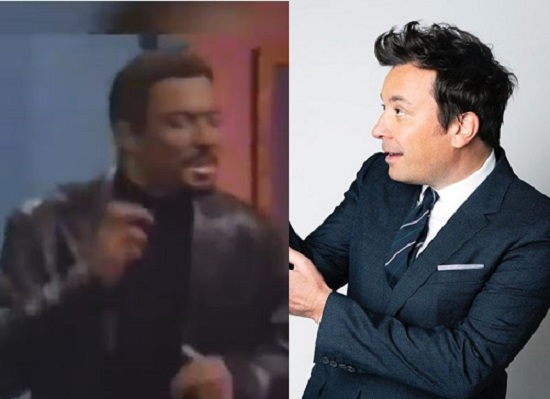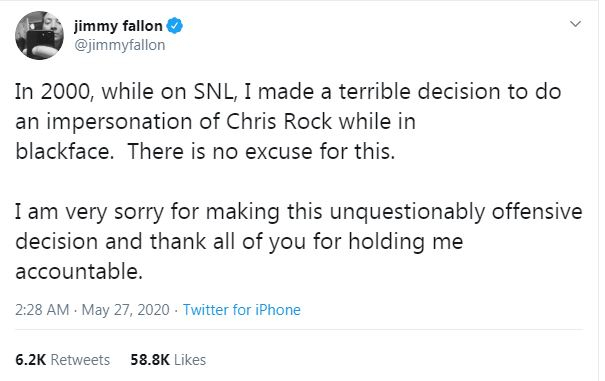
A blackface skit enacted in the year 2000 has come to haunt popular U.S. TV host Jimmy Fallon. The throwback video started circulating on social media and people started demanding that Jimmy Fallon quit as host of late-night talk show The Tonight Show Starring Jimmy Fallon.
As soon as the video became viral, Fallon took to social media to apologize for impersonating his fellow cast on Saturday Night Live (SNL) program in the year 2000. Fallon wrote on Twitter: "In 2000, while on SNL, I made a terrible decision to do an impersonation of Chris Rock while in blackface. There is no excuse for this."
Fallon was a cast of Saturday Night Live program then. Wearing a blackface makeup, Fallon acted as Chris Rock while making a joke about crack cocaine. While apologizing he said: "I am very sorry for making this unquestionably offensive decision and thank all of you for holding me accountable."

Netizens Take Blackface Artistes to Task
With the video clip becoming viral, hashtag #JimmyFallonIsOverParty started trending on Twitter, asking Fallon to quit his current show. But African American Chris Rock, whom Fallon had impersonated, has not reacted to the news so far.
Jimmy Fallon is not the first cast to wear blackface on Saturday Night Live. In fact, the show first aired in 1975 has a history of non-black actors portraying African-Americans. Former President Barack Obama, civil-rights activist Jesse Jackson, Michael Jackson's doctor Conrad Murray and musician Sammy Davis Jr have also been impersonated using blackface shows, reported Los Angeles Times. Taking the example of Jimmy Fallon, netizens also slammed popular TV hosts Jimmy Kimmel and Sarah Silverman for using blackface method to impersonate African-Americans.
What is Blackface?
Blackface is a theatrical form mostly used in the United States, where non-blacks wear a black make-up and impersonate African-Americans. This is linked to the 200-year history of showing the image of African Americans in a racist stereotype.
This form was popularly used in 19th century in the US, to spread racial stereotype messages. It was even considered as a distinctive American art form where African Americans were shown in poor light. During the early 20th century blackface branched off from minstrel show and was presented as an independent form in itself. But after many free black movements and struggles, in the 21st century blackface started to be labeled offensive and was termed a racist practice.


